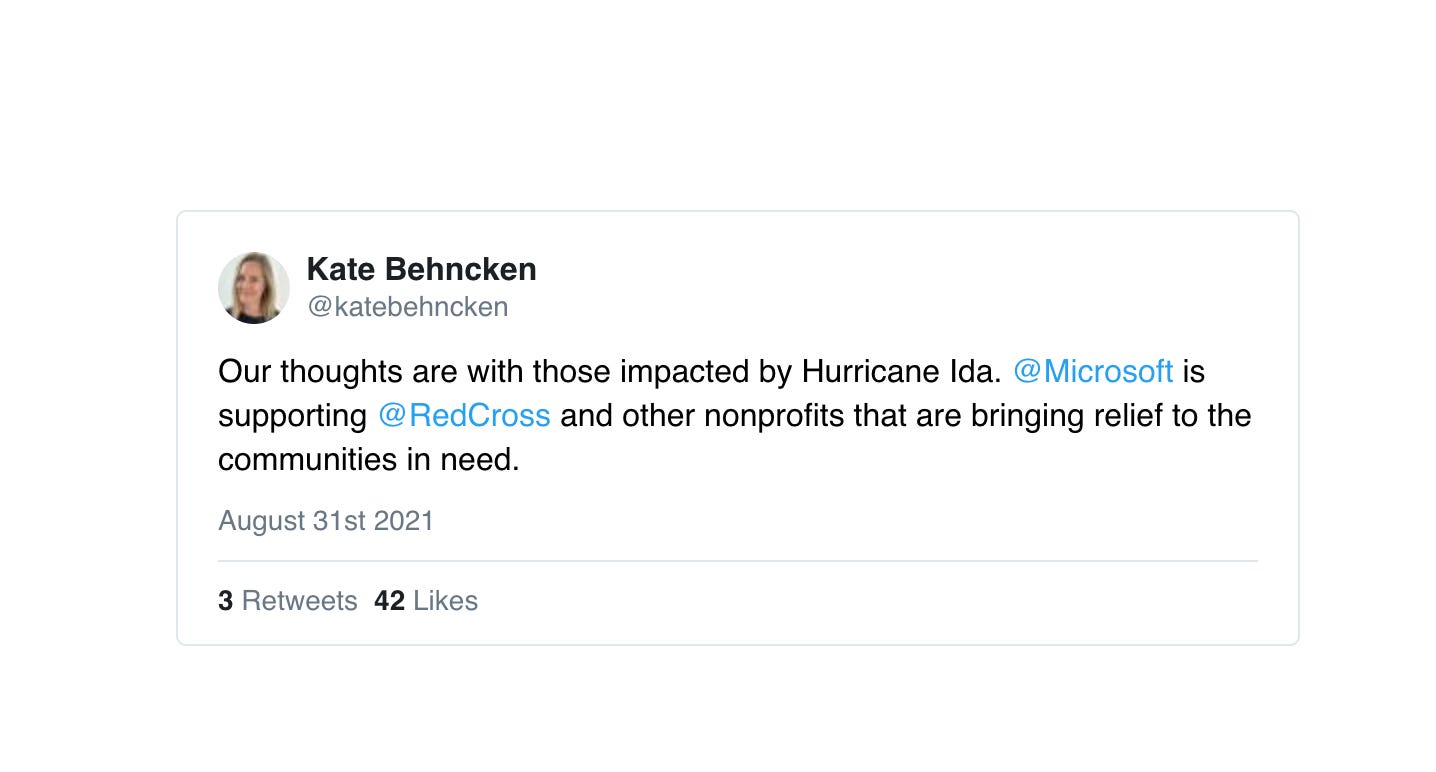Microsoft tweets concern for Ida victims while funding climate deniers in Congress
The world's second-largest company is still bankrolling climate deniers' re-election campaigns, and defending the practice.

The 2022 midterm elections are fast-approaching, and Republicans are trying to win back control of Congr…


